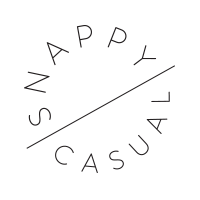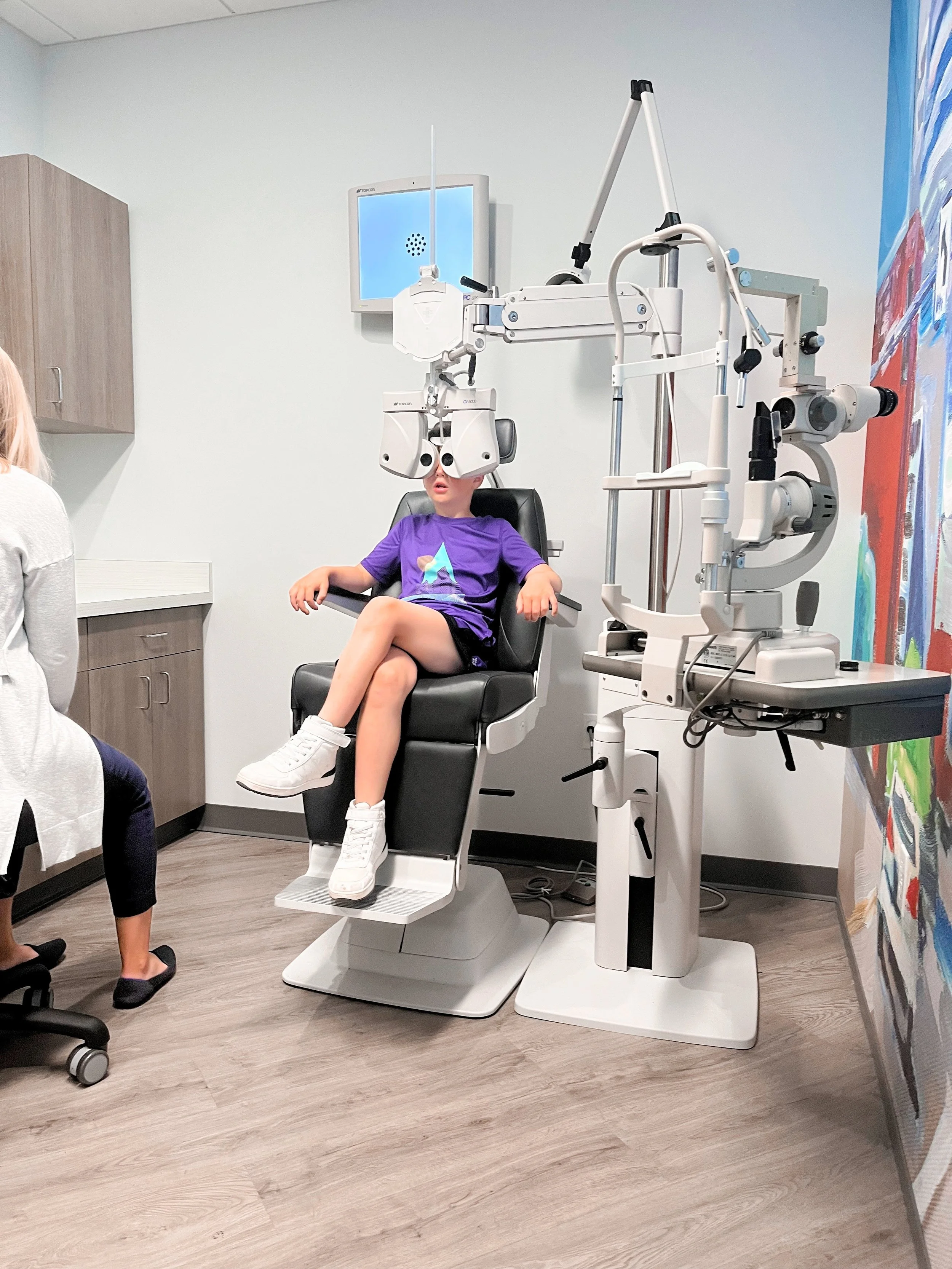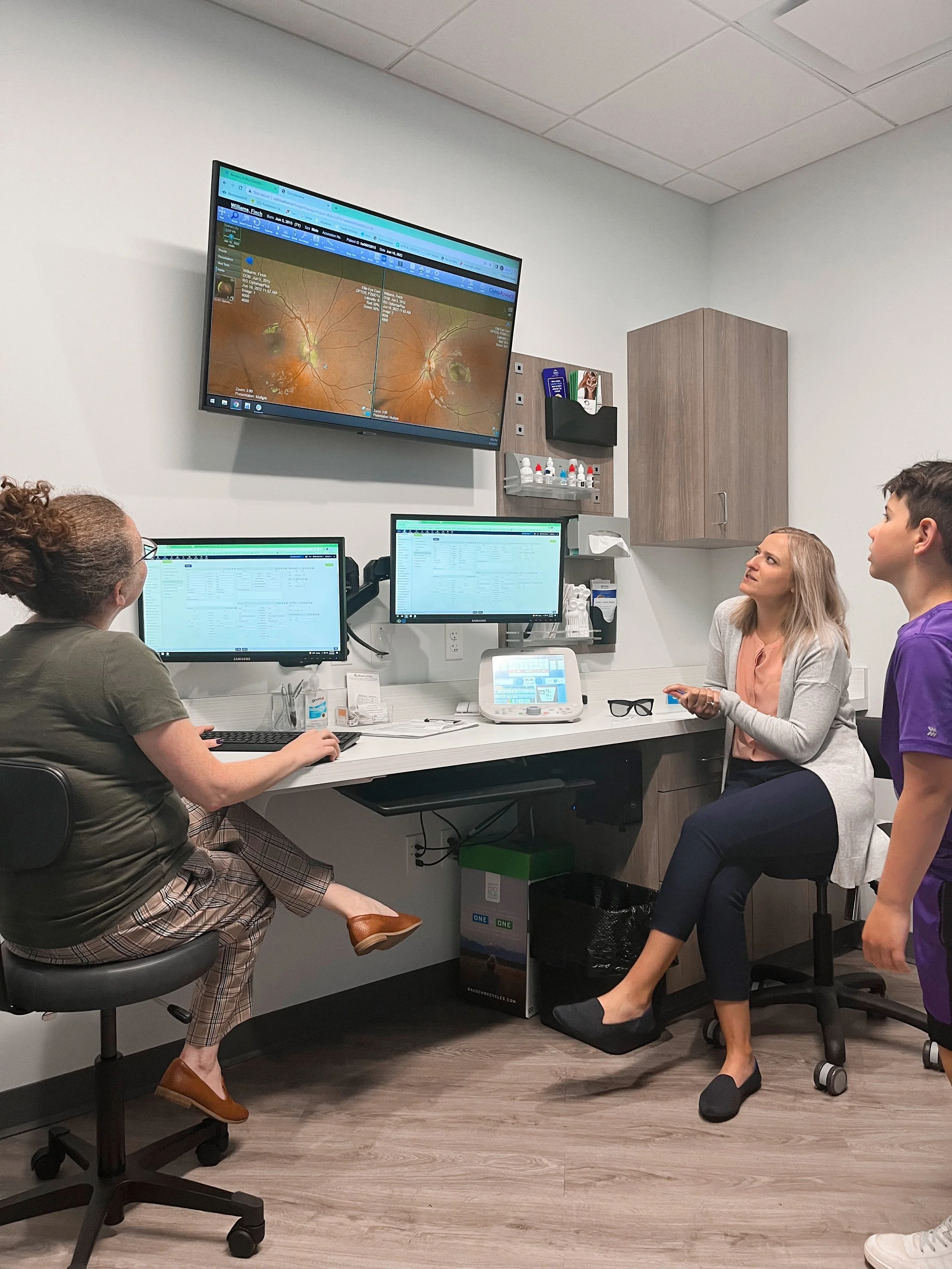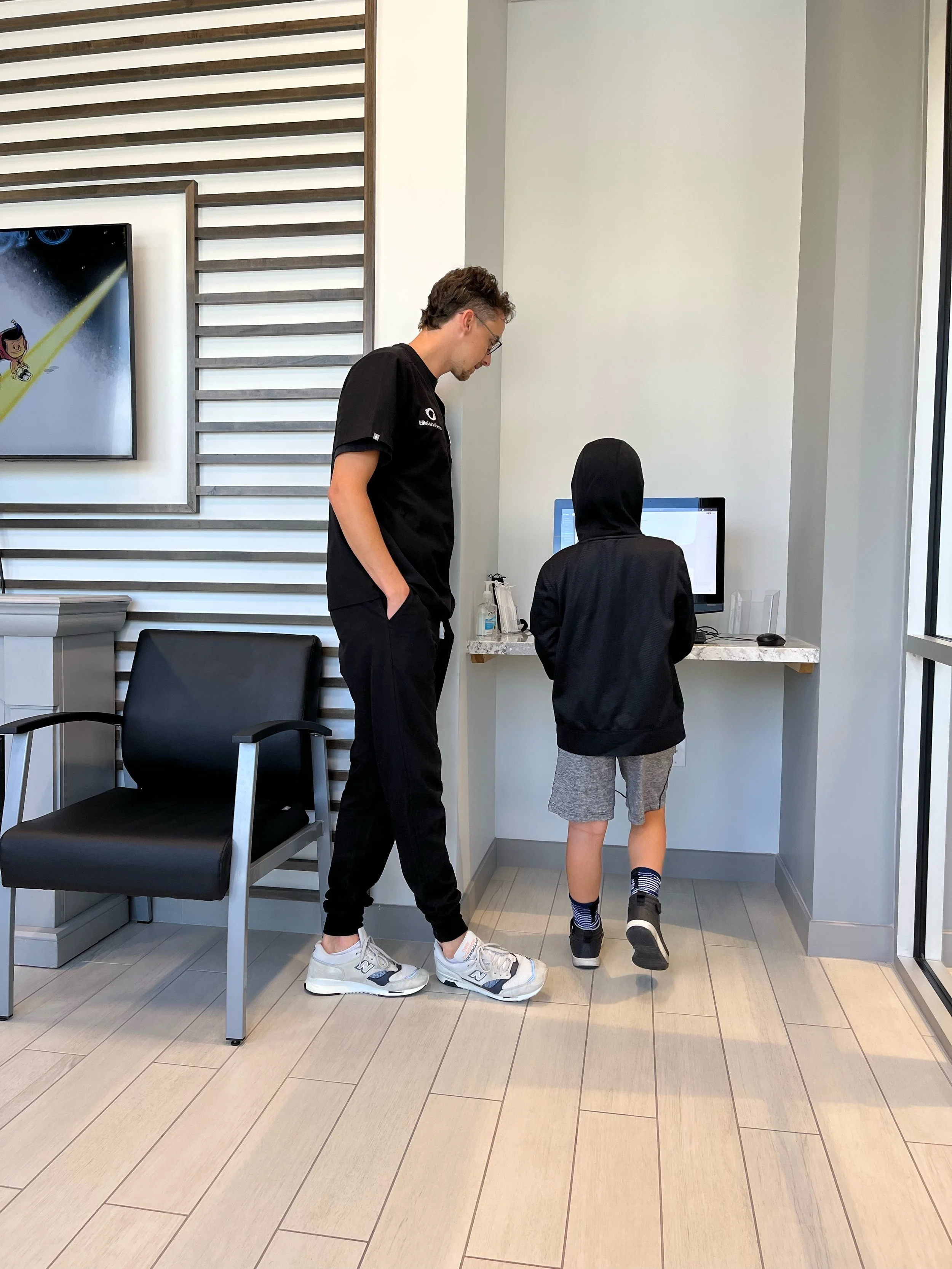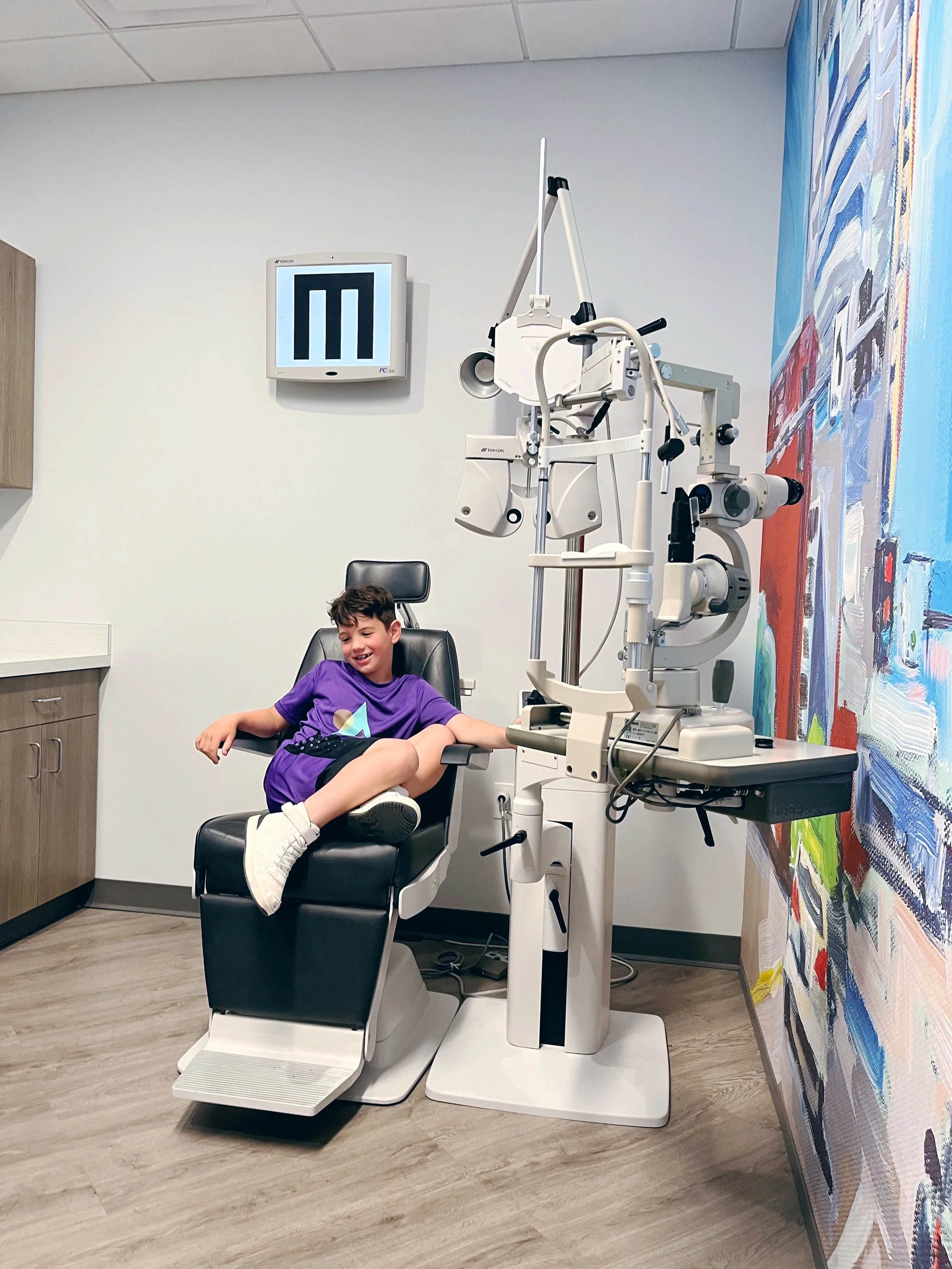Finch’s experience with vision therapy
Last summer, much to our surprise, Finch received four different vision diagnoses. After seven months of functional neurology, his eye tracking had improved, but only slightly. So, we were referred on to vision therapy. I never, ever would have guessed he had vision problems. We had his eyes checked at the pediatrician office several times and all seemed good.
At his initial evaluation, he wasn’t even able to complete some of the tests. We were shocked to learn that he saw double all the time and had no peripheral vision (which helps a person feel safe and grounded, as well as aware of their surroundings). His eyes were healthy and his eyesight was 20/20, but he wasn’t obtaining meaning from what he saw. It broke my heart to learn that it was uncomfortable for him to try to take in the world. As hard as it was to hear, I was amazed that these were fixable problems. They predicted he would need 36-48 weekly sessions to fix his vision problems.
DIAGNOSES
Convergence Insufficiency
Irregular Eye Movements
Saccadic Eye Movement Dysfunction
Fusion with Defective Stereopsis
VISION THERAPY
Vision Therapy is a custom program of exercises to strengthen the eyes and brain to treat many vision problems and learning issues. Vision therapy is done under the guidance of an optometrist and with one-on-one coaching of a vision therapist.
Finch had one 35-minute appointment each week with his vision therapist (shoutout Taylor!) and was asked to do exercises (light therapy, snow angels, ski jumps, finger touches, body lifts, etc.) at home four days a week, which took anywhere from 30-60 minutes a day. Our goals for Finch were to improve his focus while working on school tasks and to better be able to follow directions, as well as to develop his self awareness and positive self image. It was a lot of hard work!
AFTER 14 SESSIONS
After 14 sessions, Finch had an improved awareness of his vision and body, and was growing in all the skills that allow him to control his body and vision to help him achieve clear, single vision with depth perception. He had also developed in his visual comfort, spatial awareness and self confidence. At school, they noticed growth in working with peers during reading, math and recess! His numbers had improved, but not to the point of graduation.
AFTER 25 SESSIONS
After 25 sessions, Finch was within normal limits for accuracy and fluency with his reading eye movements and displayed improved binocular convergence ability to keep a target single. This contributed toward eliminating double vision and helping with attention and focus with school work.
They wanted to continue vision therapy to foster his goals with reading and ball sports through peripheral vision, reading activities and eye-hand coordination strategies, as well as foster his confidence and comfort of vision as they moved into the finishing techniques that contribute to depth perception, single and clear vision with longevity.
GRADUATION
In June 2023, after eight months, Finch graduated vision therapy! His balance, spatial awareness and reading had all shown improvements.
This milestone truly represented how much time and effort he had put in for 18 months (starting with functional neurology) to remove inflammation in his body (minimizing gluten), heal his brain, and improve the way he sees and interprets the world. He’s such a resilient little dude.
We are forever grateful for Elite Eye Care and so incredibly proud of Finch! Taylor and Dr. Bell were such a good fit for Finch. They truly are changing peoples’ lives!
OVERALL THOUGHTS
For anyone considering vision therapy: It’s time-consuming, expensive and really hard work — but we also saw more growth in Finch during this process than we have with anything else. Vision therapy is not for the weak. They praised Finch and said he graduated early because of his determination to do hard things, not being afraid to fail, a great attitude, a positive mindset and willingness to take on challenges.
Most of our therapy was done in the winter months, which is great where we live because you don’t want to be outside much. Once spring rolled around, he was involved in other activities (baseball, taekwondo, LEGO club) or wanted to be outside playing and it was harder to fit in the home exercises. So, I would recommend doing vision therapy during a season when you have extra time to spend on it.
I put together a compilation video of our journey, which I can finally watch without crying:
